第51章 Appendix: On What Can Be Done To Make Metaphysics
Since all the ways heretofore taken have failed to attain the goal, and since without a preceding critique of pure reason it is not likely ever to be attained, the present essay now before the public has a fair title to an accurate and careful investigation, except it be thought more advisable to give up all pretensions to metaphysics, to which, if men but would consistently adhere to their purpose, no objection can be made. If we take the course of things as it is, not as it ought to be, there are two sorts of judgments: (1) one a judgment which precedes investigation (in our case one in which the reader from his own metaphysics pronounces judgment on the Critique of Pure Reason which was intended to discuss the very possibility of metaphysics); (2) the other a judgment subsequent to investigation. In the latter the reader is enabled to waive for awhile the consequences of the critical researches that may be repugnant to his formerly adopted metaphysics, and first examines the grounds whence those consequences are derived. If what common metaphysics propounds were demonstrably certain, as for instance the theorems of geometry, the former way of judging would bold good. For if the consequences of certain principles are repugnant to established truths, these principles are false and without further inquiry to be repudiated. But if metaphysics does not possess a stock of indisputably certain (synthetical) propositions, and should it even be the case that there are a number of them, which, though among the most specious, are by their consequences in mutual collision, and if no sure criterion of the truth of peculiarly metaphysical (synthetical) propositions is to be met with in it, then the former way of judging is not admissible, but the investigation of the principles of the critique must precede all judgments as to its value. On A Specimen Of A Judgment Of The Critique Prior To Its Examination. This judgment is to be found in the Gottingischen gelehrten Anzeigen, in the supplement to the third division, of January 19, 1782, pages 40 et seq. When an author who is familiar with the subject of his work and endeavors to present his independent reflections in its elaboration, falls into the hands of a reviewer who in his turn, is keen enough to discern the points on which the worth or worthlessness of the book rests, who does not cling to words, but goes to the heart of the subject, sifting and testing more than the mere principles which the author takes as his point of departure, the severity of the judgment may indeed displease the latter, but the public does not care, as it gains thereby; and the author himself may be contented, as an opportunity of correcting or explaining his positions is afforded to him at an early date by the examination of a competent judge, in such a manner, that if he believes himself fundamentally right, he can remove in time any stone of offense that might hurt the success of his work. I find myself, with my reviewer, in quite another position. He seems not to see at all the real matter of the investigation with which (successfully or unsuccessfully) I have been occupied. It is either impatience at thinking out a lengthy work, or vexation at a threatened reform of a science in which he believed he had brought everything to perfection long ago, or, what I am unwilling to imagine, real narrow-mindedness, that prevents him from ever carrying his thoughts beyond his school-metaphysics. In short, he passes impatiently in review a long series of propositions, by which, without knowing their premises, we can think nothing, intersperses here and there his censure, the reason of which the reader understands just as little as the propositions against which it is directed; and hence [his report] can neither serve the public nor damage me, in the judgment of experts. I should, for these reasons, have passed over this judgment altogether, were it not that it may afford me occasion for some explanations which may in some cases save the readers of these Prolegomena from a misconception. In order to take a position from which my reviewer could most easily set the whole work in a most unfavorable light, without venturing to trouble himself with any special investigation, he begins and ends by saying: "This work is a system of transcendent (or, as he translates it, of higher) Idealism." 42 A glance at this line soon showed me the sort of criticism that I had to expect, much as though the reviewer were one who had never seen or heard of geometry, having found a Euclid, and coming upon various figures in turning over its leaves, were to say, on being asked his opinion of it: